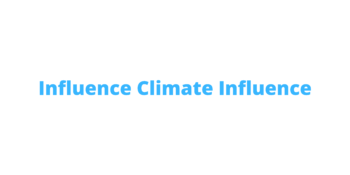The building conversation about introverts in the business world strikes a chord. Though few who have met me in person would guess it, I am one, with a capital “I.” Interestingly (and fortunately), using social media has been key for finding the balance that lets me think, work and connect most productively. Thanks to this tool, my ability to build a profile in my particular focus area, sustainability, is not hindered by the fact that I live in “remote” Seattle (compared to cities like NYC, Boston or San Francisco, I mean).
Even with my strong introvert tendencies, I still feel very connected the 70 percent of time I’m alone in my office working. From my social media dashboard, I can “talk” with and learn from many smart thinkers, gather information and develop authentic relationships that also make my 30 percent “in public” time productive and rewarding both personally and professionally.
Still, as Susan Cain has written in her fantastic book, Quiet: The Power of Introverts in a World That Can’t Stop Talking — and as the many more introverts who have gone public since she (bravely) raised the issue have experienced for themselves — extroversion is more culturally accepted. The woman who wrote this piece on President Obama’s introversion put it well:
“I understand the judgments extroverts often make about us. I too thought there was something wrong with me as I recoiled from what felt like the mania of others. Until I was able to learn to value introversion, I thought of myself as lazy, disengaged and an observer rather than a participant. That’s what it means to be an introvert in a culture where being social and outgoing are prized above all else.”
Introversion As Weakness
Take that up a notch when you start to look at what culture expects of a business leader. Most leaders’ schedules are full of meetings, speaking engagements, traveling and socializing, but do not include much time for being alone to process and/or to simply think. If it doesn’t look or measure as action, it is perceived as less than productive. Still, there is a whole group of people who struggle with these expectations and on whose wisdom and leadership capabilities the world is potentially missing out. Integrating introverts and celebrating their strengths should be part of that “diversity” we are ever more intently seeking (if business media and conference coverage of that topic is any indication).
Though questions of race, gender and sexual preference are far from resolved, at least (I think), our culture is softening toward a new and better situation (see the increasing discussion around getting more women on corporate boards, and note Tim Cook’s recent announcement).
Yet, introversion has not yet even made that diversity checklist (and that has inspired a revolution Cain is now spearheading). Perhaps it seems like some sort of attitude problem that any dedicated professional could “work on” to “overcome” more than a deep seeded cultural problem. But, an almost institutionalized cultural problem it is.
With all of these — race, gender, sexual preference and introversion/extroversion — striving for diversity is about combining different worldviews, experiences and backgrounds, not about diluting the combination of those into one big soup. So, knowing that all of these diversity issues, but perhaps introversion even more, can involve long haul transitions, what can help introverted business leaders — right now — to leverage their natural ways in developing their careers and sharing their wisdom?
Enter Social Media
The way I see it, the power in using social media well may prove to be a bigger bonus for introverted leaders than the traditionally extroverted ones (who may more naturally use social media, but with less intention). If introverts value authenticity and getting to know a few people well versus collecting a lot of acquaintances and knowing them not-so-well; and, if they are a bit more strategic in how they use their time, getting comfortable using social media can truly forward the values, wisdom and causes of leaders who happen to be somewhere along the more “quiet” spectrum. The tools and tips are out there for everyone, but business leading introverts should have more motivation to get comfortable and savvy with the practice of social media engagement. They have to counter a culture, as it were. And, engaging with social media helps us introverts build trusted connections and have deeper conversations, even with the limited amount of time we can be “out there” online or off.
Whether introvert or extrovert, by using social media, you can more intentionally:
- Create and manage expectations of when and how long you will be “on” any particular network
- Engage when you are on a network, and not be blindsided/interrupted when you prefer to be “off”
- Build trust through intimate one-on-one relationships
- Decide which conversations to join
- Plan for purposeful real-life meetings/engagement at conferences
- Focus in on exactly the topics that most energize you (and that you have the most to contribute to)
- Walk away from it altogether whenever you need down time
- Create and curate content and conversations that have personal meaning or business value
Energy-sapping things introverts can avoid by using social media:
- Having to be out and about – in real life – too much
- Superficial conversations
- Spending time on topics that don’t forward the learning/growth you seek
- Building followers for the sake of the number
- Trying to be more “social” as an obligation
Hmmm… Wouldn’t that sound great to anyone – introvert or extrovert (or anywhere in between)?
Ultimately, social media engagement is an amazingly powerful and rewarding way to build powerful and authentic social capital.
The Introvert’s Advantage
Introversion is not about being aloof or anti-social, even if it may sometimes appear that way (as per the continuing perception of President Obama). It is about knowing where your energy is, how and when to tap it, and how you can best manage that flow between “on” and “off.”
Learning to use social media effectively will help anyone to be more authentic, to waste less precious business-day time and to tend the more meaningful exchanges and information sources toward doing their best work. While any leader should see it as a powerful tool, introverted leaders can put social media to use to balance their perceived weaknesses. In that, managing introversion becomes an absolute strength.
This article first published in HuffingtonPost, November 12, 2014.
Special thanks to Anoldent for use of the image.





